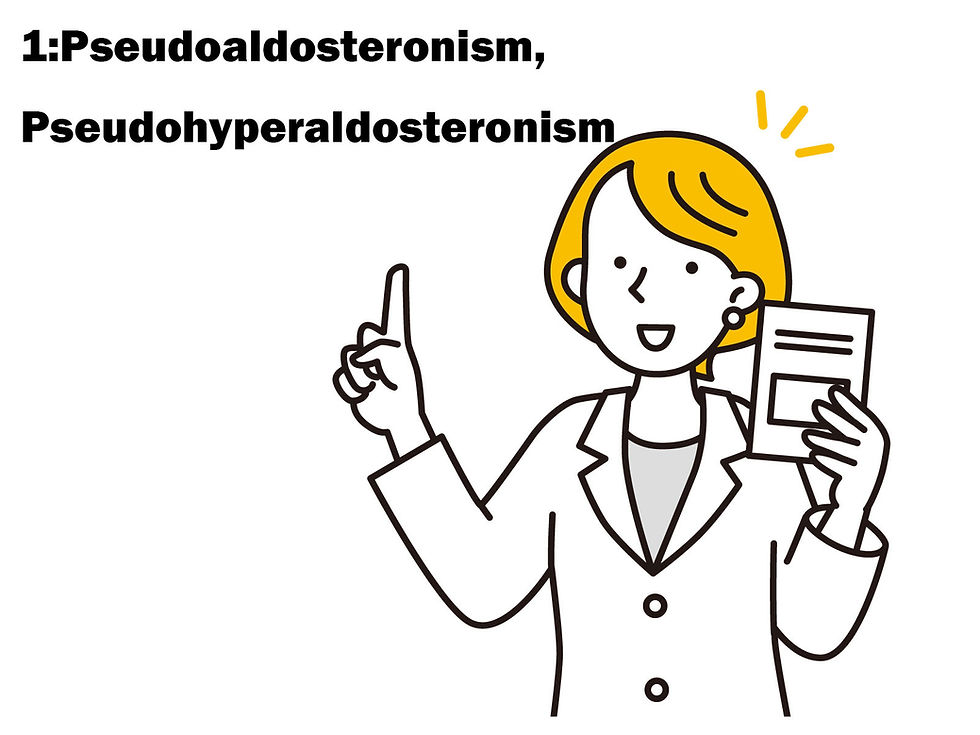Manual for Serious Adverse Drug Reactions by Disease
- H.Kitaoka
- Mar 5, 2024
- 4 min read
Updated: May 12, 2025
Predictive and Preventive Measures for Adverse Drug Reactions: A Guide for Early Detection and Response"
Conventional safety measures have focused on drugs, collecting and evaluating adverse reactions that have occurred for each drug and alerting clinical sites to them, and responding to them after the fact,
(1) Side effects can occur in organs different from the clinician's area of expertise.
The frequency of serious adverse drug reactions is generally low, and individual clinicians may not have many opportunities to encounter adverse drug reactions.
In some cases, the discovery of adverse drug reactions can be delayed, resulting in serious adverse drug reactions.
Therefore, in addition to the conventional countermeasures against adverse drug reactions that focus on individual drugs, we hope that this manual will be utilized as a predictive and preventive countermeasure against adverse drug reactions that focus on adverse drug reactions that may occur as a result of drug use.
The manual provides an overview of side effects, initial symptoms, and points for early detection and early response that patients and patients' families should be aware of, in as easy-to-understand language as possible.

1:Pseudoaldosteronism, Pseudohyperaldosteronism
For Patients
The side effects described here are rare and do not always occur. However, if left unnoticed, side effects can become serious and affect your health, so it is important to "recognize" them and deal with them as soon as possible. Therefore, in order to ensure safer treatment, please refer to this manual to let patients themselves or their family members know that there are "early signs of side effects" as a precaution against side effects, and contact your healthcare provider if you notice them.
Description: Even though the hormone (aldosterone) that raises blood pressure is not increased
Pseudohyperaldosteronism," in which symptoms such as high blood pressure, swelling, and low potassium occur despite no increase in the hormone that raises blood pressure (aldosterone).
Pseudohyperaldosteronism" can be caused by pharmaceuticals.
This is mainly due to herbal medicines containing licorice and its main ingredient, glycyrrhizin, as well as cold medicines,
It is mainly seen with herbal medicines containing licorice and its main ingredient glycyrrhizin, cold medicines, gastrointestinal medicines, and medicines for liver disease.
If you are taking any of these medications and experience any of the following symptoms, do not leave the condition untreated but consult your doctor or health care professional.
If you are taking any medication and experience any of the following symptoms, do not leave it untreated, but contact a medical facility.
If you experience any of the following symptoms, do not leave it untreated and contact your doctor or pharmacist: "limb weakness," "numbness," "tightness," or "stiffness.
In addition to these symptoms, "weakness," "fluttering," and "muscle pain" may occur,
Muscle aches and pains appear and gradually become worse.
1. what is pseudoaldosteronism?
Aldosterone is a hormone secreted by the adrenal glands that increases blood pressure by causing the body to store salt and water and excrete potassium. Excessive secretion of this hormone causes high blood pressure, swelling, and low potassium levels, and is called "aldosteronism.
Pseudohypoaldosteronism is a condition in which the symptoms of aldosteronism are present even though there is no increase in aldosterone in the blood. The main symptoms are known as "weakness or loss of strength in the limbs" and "increased blood pressure. This is followed by "muscle pain," "lethargy," "numbness in the limbs," "limb twitching," "paralysis," "headache," "swelling of the face and limbs," "thirst," "loss of appetite," "palpitations," "feeling sick," "nausea," and "vomiting. As symptoms progress, in rare cases, "loss of consciousness,
difficulty breathing when moving," "inability to walk or stand," "reddish-brown urine," and "nausea and vomiting,
Reddish-brown urine," or "excessive or difficult urination,
Diabetes mellitus may worsen.
The main cause is taking medicines containing licorice or its main ingredient, glycyrrhizin. Licorice and glycyrrhizin are found in herbal medicines, cold medicines, gastrointestinal medicines, and medicines for liver problems. Too much salt and water in the body causes increased blood pressure, swelling, and loss of potassium from the body, which can lead to weakness and muscle abnormalities such as muscle pain and limpness. In severe cases, muscles may break down and the pulse may be erratic.
2. points for early detection and early response
Early detection and early response are important when "limb weakness," "numbness," "tightness," or "stiffness" is observed, or when "numbness," "numbness," "tightness," or "stiffness" is observed,
In addition to these symptoms, if a "feeling of weakness," "fluttering," or "muscle pain" appears and becomes progressively worse, and if the patient is taking Chinese herbal medicine, cold medicine, gastrointestinal medicine, drugs for liver disease, or over-the-counter drugs, do not leave the condition untreated but contact a medical institution. Symptoms may appear only after taking them for several weeks or years. It may also be caused by taking multiple medications together.
When you visit your health care provider, please inform them of the type and amount of medication you have taken and how long you have taken it. Also, tell them if you are taking any medications prescribed by other medical institutions or over-the-counter medications.



Comments